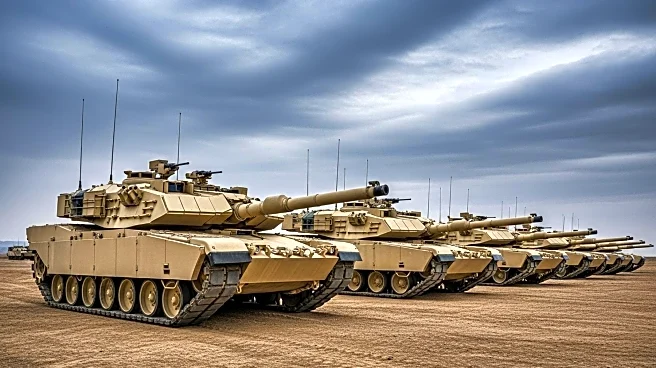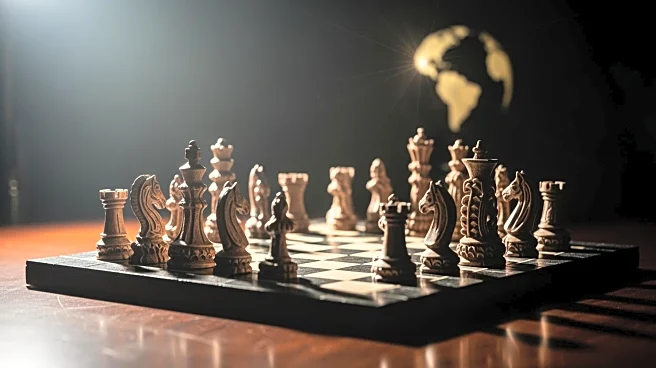What's Happening?
Xi Jinping, the President of China, has positioned China as a global stabilizing force during a military parade, suggesting a shift away from U.S. dominance. The parade, featuring leaders like Vladimir Putin and Kim Jong Un, showcased China's growing influence as traditional U.S. allies reconsider their positions due to President Trump's confrontational foreign policy. Trump's approach, characterized by trade wars and unilateral sanctions, has led many countries to seek closer ties with China, which is building new institutions and alliances, such as the SCO Development Bank and visa-free travel agreements with Russia.
Why It's Important?
This development signifies a potential realignment in global power structures, with China emerging as a central figure in a new world order. The shift could impact U.S. economic and security interests, as countries increasingly look to China for stability and economic partnerships. The erosion of trust in U.S. leadership may lead to reduced influence in international affairs, affecting trade, security alliances, and diplomatic relations. The U.S. may face challenges in maintaining its role as a global leader, as China offers an alternative model of governance and economic cooperation.
What's Next?
The U.S. may need to reassess its foreign policy strategies to counter China's growing influence. This could involve strengthening alliances, revisiting trade policies, and engaging in multilateral diplomacy to restore confidence among traditional allies. The international community will be watching how the U.S. responds to this shift, as well as China's continued efforts to expand its global reach. Future diplomatic engagements and economic policies will be crucial in determining the balance of power between these two nations.
Beyond the Headlines
The rise of China's influence raises ethical and cultural questions about the global acceptance of authoritarian governance models. As China builds its parallel world order, the implications for human rights, freedom of speech, and democratic values become increasingly significant. The long-term impact on global governance structures and the potential for increased regional conflicts are areas of concern that require careful monitoring.








